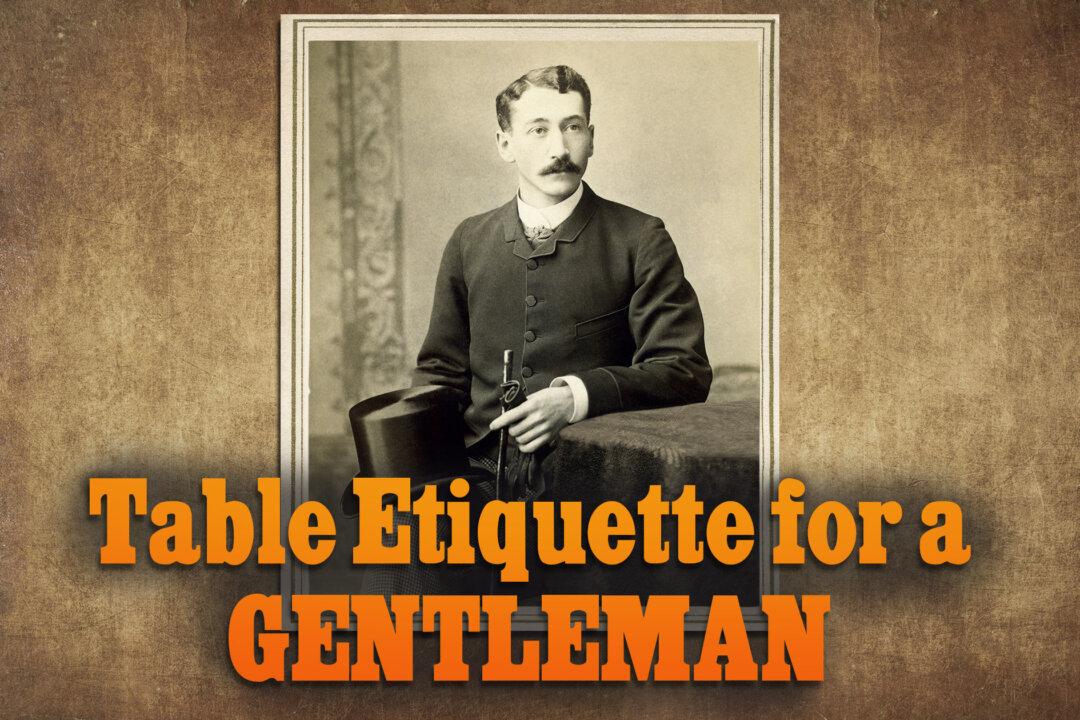The following is an excerpt from “The Gentlemen’s Book of Etiquette, and Manual of Politeness” by Cecil B. Hartley, published by Locke & Bubier in 1875.
IT may seem a very simple thing to eat your meals, yet there is no occasion upon which the gentleman, and the low-bred, vulgar man are more strongly contrasted, than when at the table. The rules I shall give for table etiquette when in company will apply equally well for the home circle, with the exception of some few points, readily discernible, which may be omitted at your own table.






